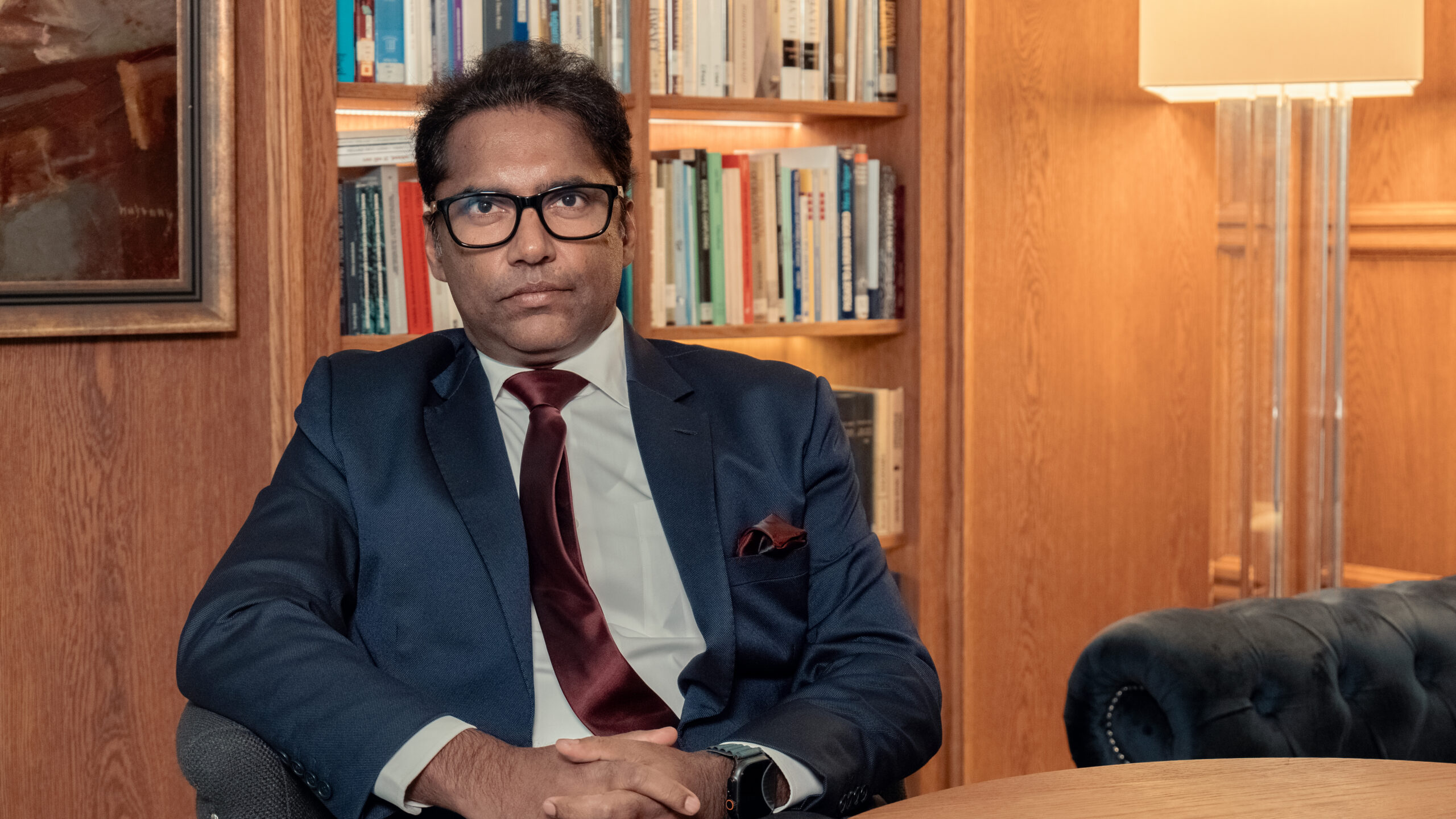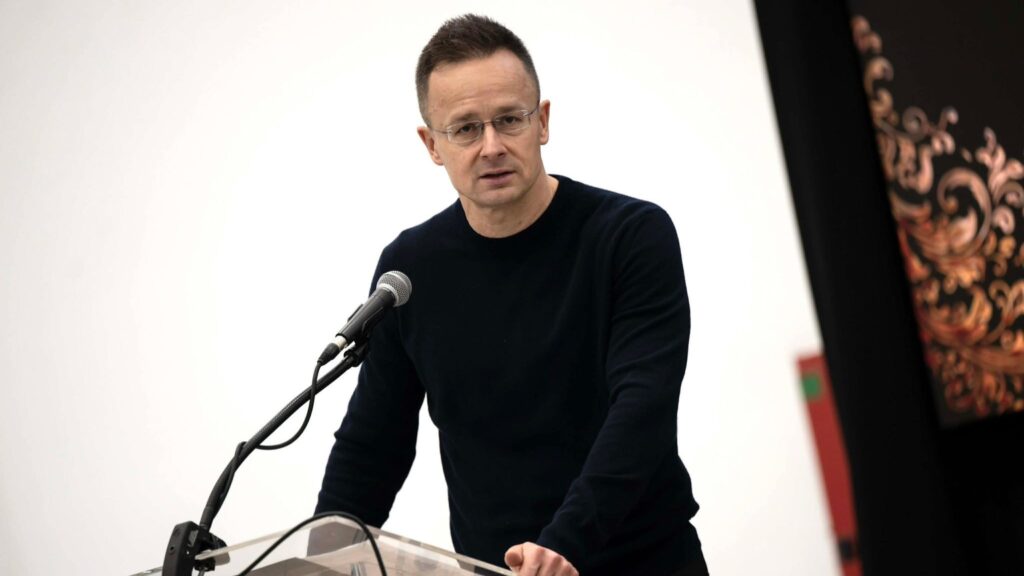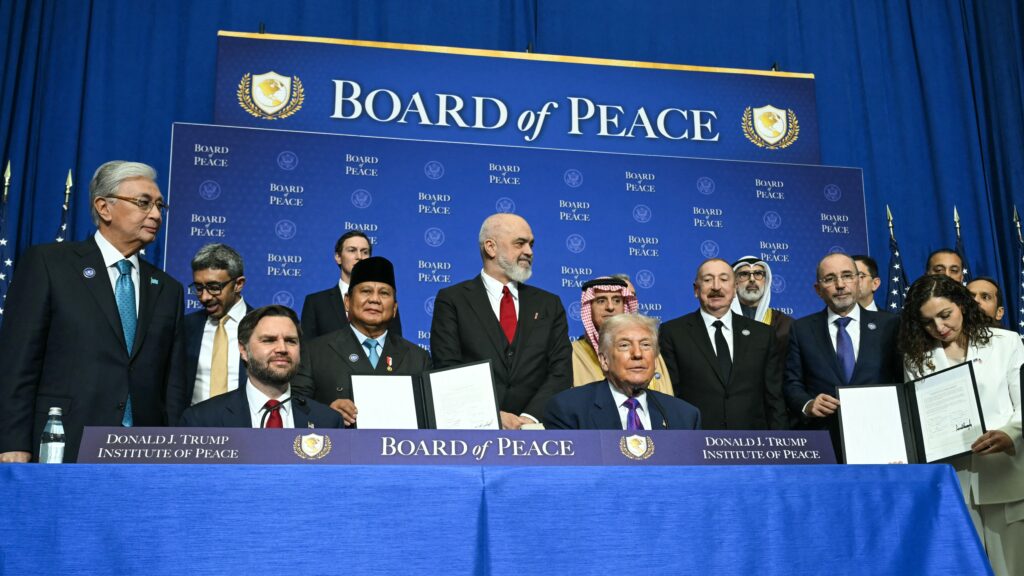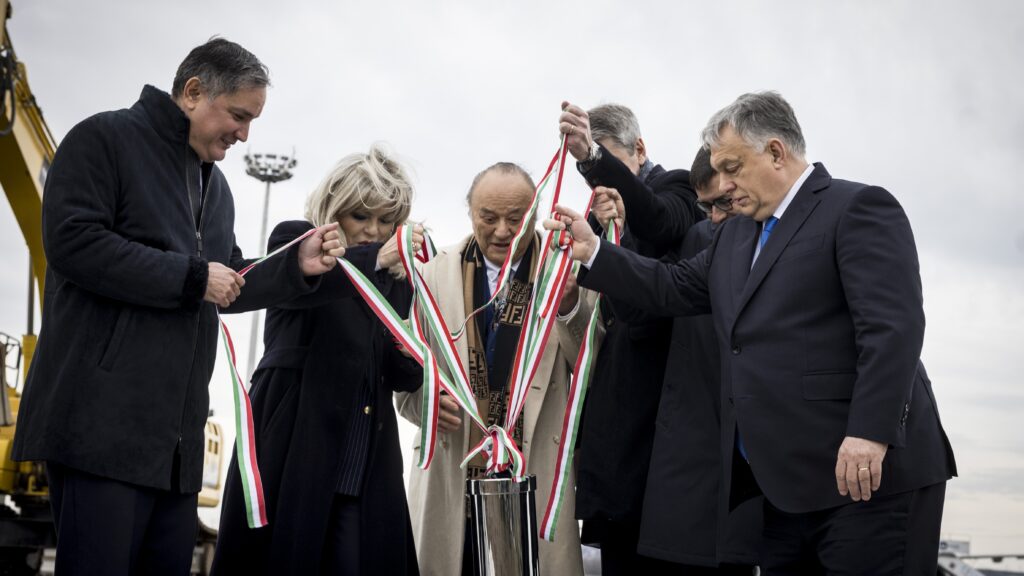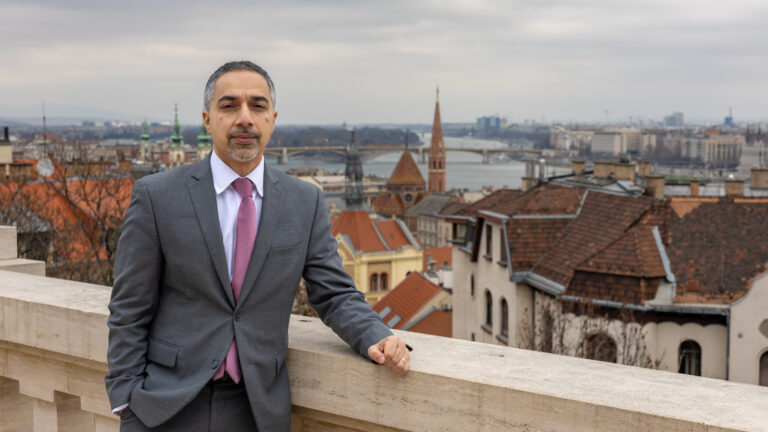Happymon Jacob is an Associate Professor of Diplomacy and Disarmament at the School of International Studies, Jawaharlal Nehru University (JNU), and is the founder and director of the Council for Strategic and Defence Research (CSDR). He is the author of Line on Fire: Ceasefire Violations and India-Pakistan Escalation Dynamics (OUP, 2019) and Line of Control: Traveling with the Indian and Pakistani Armies (Penguin Viking, 2018). He is also a columnist for the Hindustan Times and serves as the editor of the newly launched magazine India’s World.
***
What is India’s interest in IMEC (India–Middle East–Europe Economic Corridor)?
I think India’s interest in IMEC stems from the fact that today India looks at the world very differently than it used to do during the Cold War years and before it started its economic reforms in the 1990s. If you look at the Indian policies towards globalization and economic development, you see that it has a very open and expansive view of the world. For the last several years, India has been signing many free trade agreements. Now, there is one that is being negotiated with the United States. We have just finalized one with the United Kingdom. There is one ongoing with Australia. There’s also one with the EU that is being negotiated. So India has moved away from its traditionally cautious approach to global economic engagement and is now adopting a more proactive stance.
Number two: for a very long time, India was also focused on its challenges, opportunities, and problems in the continental neighbourhood. Today, India looks at the Indo–Pacific region as a major opportunity. If you look at the Indian map, you will see that 15,000 kilometres of India is in a problematic area: Pakistan, China, Afghanistan, and the rest. But if you look at the Indo–Pacific, that’s where the opportunities are. So I think in the larger sort of perspective of economic growth, IMEC comes up as a great opportunity in terms of connectivity with the rest of the world. There is, of course, the argument that you can have many smaller trading arrangements with various countries, but as we are 1.4 billion people and as the economy grows, you will need more connectivity, more markets, more routes and alternatives—I think that’s where India’s interest in IMEC comes from.
The route of IMEC avoids Pakistan which India has a current conflict with. And India reaches the Middle East and the European markets. Would it be a boost for Indian trade and connections?
IMEC seems like a futuristic project, because it has a lot of challenges: it’s a great idea, but the point is how to implement it. There are questions in terms of the implementation. For example, if you look at the cost effectiveness, sea routes may be cheaper in some ways. If you look at the various pressures and geopolitical contestations within the Middle East and along the route, you see several of them. I mean, we are looking at smaller connections, such as FTS connectivity with various partners.
‘IMEC comes up as a great opportunity in terms of connectivity with the rest of the world’
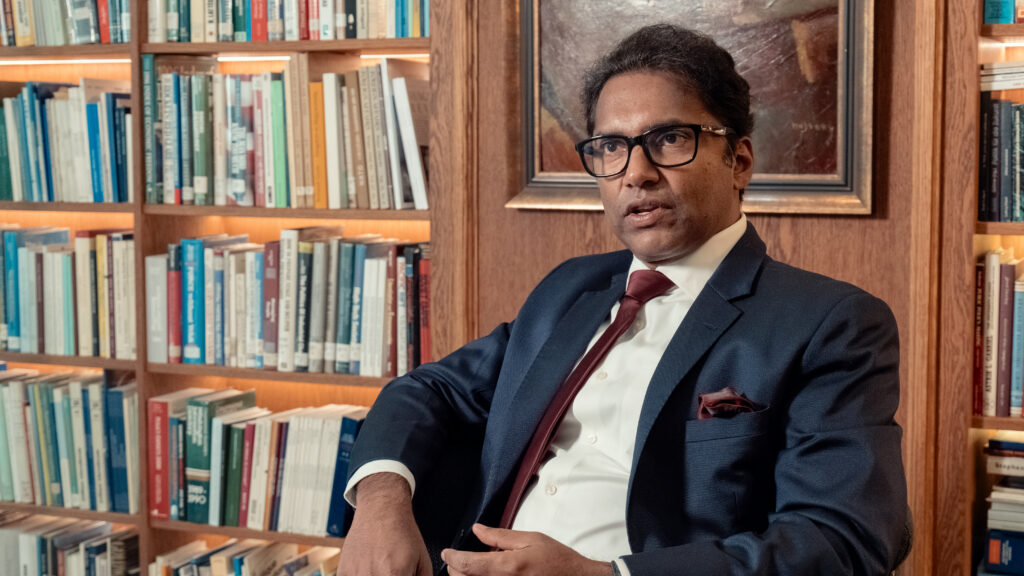
Regarding IMEC, there is a great deal of scepticism within the Indian strategic community in terms of its viability, due to geopolitical contestations, and the question of how it could be funded. So far, probably one or two countries in the Middle East are showing economic interest in this. But if there is no money in it, who is going to build all of this?
But it seems that all the partners are interested in it: America, the Arab states, Israel, India, and European countries. Could it be built gradually, and can it be a monumental project in 20 years’ time?
I personally am a globalist. I believe that it’s important to have multiple routes and multiple channels of trade and cooperation. I believe in that. My concern is whether enough homework has been done while sitting back. There is a memorandum of understanding at this point of time, as far as the makers concerned, but beyond this not much has happened. So there is no leadership, there is no blueprint. We have to be serious about it, and that seriousness must come from real action on the ground. So can we at least have regular summits like those of the Quad? Can we have regular conversations among real experts who need to evaluate the math of it, examine the economics of it, and tell us the viability of it? I think much is needed in terms of its next steps, but until that happens, this remains at the level of a fantastic idea.
‘IMEC is not going to depend on one country, therefore its sustainability is guaranteed’
Many experts consider this project an alternative, or maybe even a rival to the Chinese Belt and Road Initiative (BRI). And if you see the connection between the West and the East, the BRI project concludes with China, while the IMEC project concludes with India, another superpower. Aren’t you afraid that China will retaliate against India because of this?
I believe that China has its own BRI project, which India has issues with, simply because it goes through a land disputed by India, the Pakistan-occupied Kashmir. I think the big difference between BRI and IMAC is that BRI is led by China, it is about China, it’s from China and is by China. In some ways, it’s directed and driven by China. IMEC is very different: it doesn’t have one dominant power, there are multiple countries involved, with varying cultures and geopolitical interests, and so much of divergence within IMEC. This is a project that’s going to have much more democracy, more consensus building, and more participation from the participating countries. So if China declines, BRI is going to be in some kind of trouble. Since IMEC is not going to depend on one country, therefore its sustainability is guaranteed. But when we approach the global South with this idea, I don’t think we should offer it as a complete alternative to the BRI. I think BRI has its place in the world, and IMEC will have its place in the world. Unlike in Europe and North America, people in the Global South are unwilling to make choices of that kind. They don’t want to make black and white choices. They exist in gray zones, so I think it’s important to address those sensitivities.
But someone might say that India joining to this project could mean that America succeeded in persuading India to shift its position from being a neutral player between the adversaries in the East and the West to stepping a bit closer to the alliance of the West against China.
No, I would not look at it that way. I would say that India faces a certain challenge from China. That’s quite clear. The Indian government knows that China is the future challenge for India. For the first time in our history, China is a superpower rising next door. So it didn’t require the United States to inform India that it must be alert to China. We already knew that we had to find a pathway to engage the international community in trade and commerce that is not aligned with China. So in fact, India is more vocal about the China challenge today than many countries in the West, in Europe. So I don’t think it needs a push from the US to realize the China challenge.
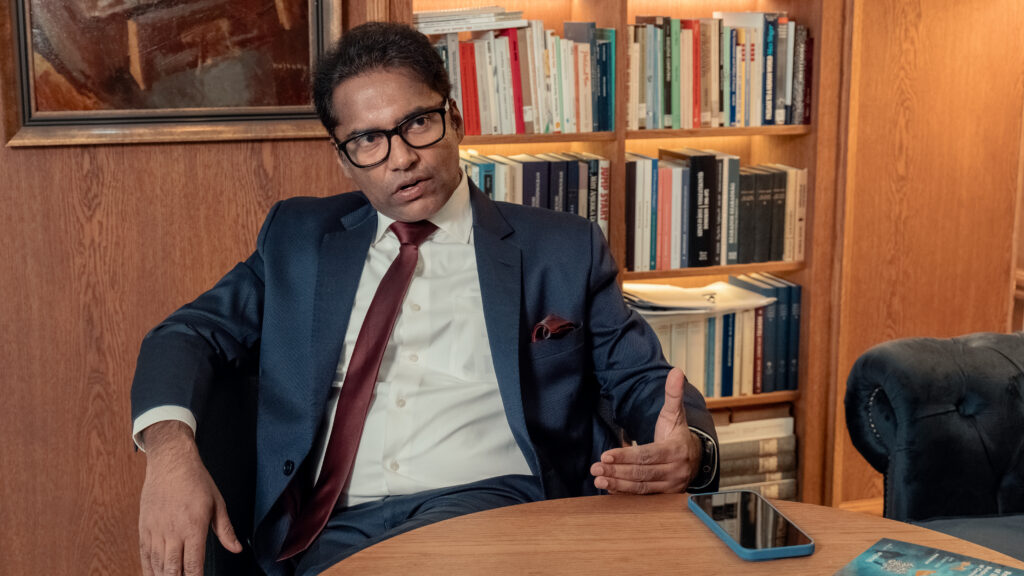
It’s just a theoretical question: if you joined IMEC, could it be the next step for Japan, South Korea, Australia to persuade India to be a more willing partner in the Quad or in the FOIP strategy, or in other regional cooperations too in the future?
Well, I think it’s in some ways already taking place. India is an active participant in Quad, and is an active participant in many of the regional mini multilateral alliances.
I was asking if India might be more involved in them.
I understand. I think the Indian involvement in the mini multilaterals led by pro-Western countries in the region is only going to increase. But I don’t think that will necessarily cancel out India’s participation in forums that include Russia, China, South Africa, or some other countries. India is a huge country with 1.4 billion people, so it can’t make black and white choices or singular decisions. It has to put its eggs in various baskets, and that will continue to happen going forward.
‘The Indian government knows that China is the future challenge for India’
The IMEC project has a geopolitical edge too. Two participant states, Saudi Arabia and the United Arab Emirates are those Arab states that President Trump tried to persuade to ally with the US against Iran. Is there a bigger strategic picture behind it?
From an Indian point of view, if there is a grand reconciliation between Israel and the Arab states, that’s only going to help India’s course. India’s own policy is the same in the Middle East. So far there is a conversation among the European countries, Israel, and the Gulf States and India; I think the geopolitics of India is very happy with that.
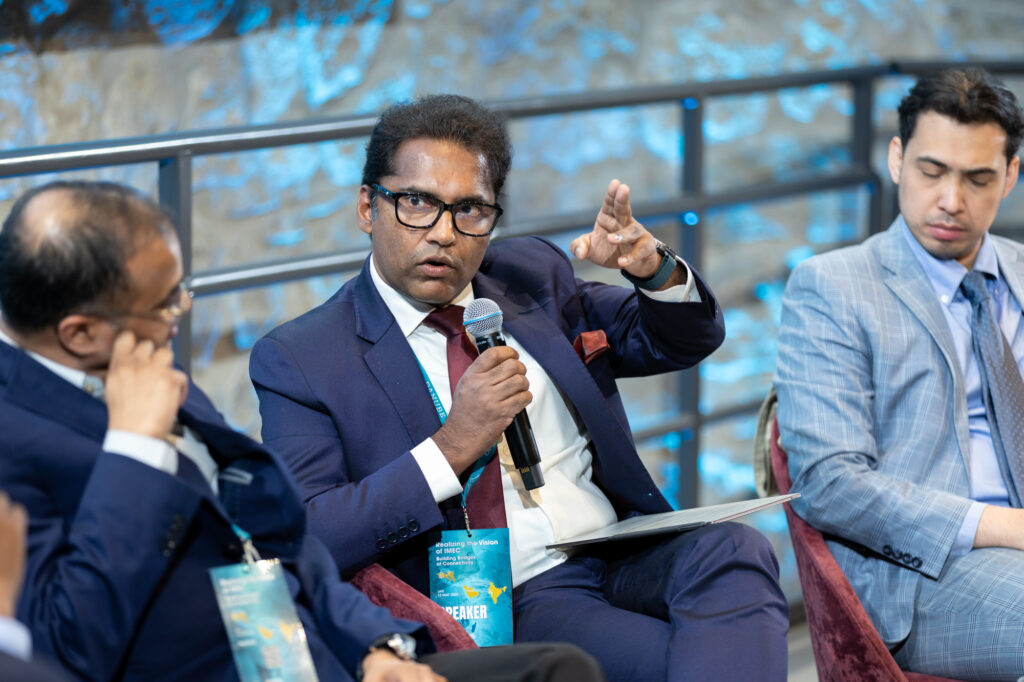
‘India is a huge country with 1.4 billion people, so it can’t make black and white choices or singular decisions’
But there is a caution that India is quite close to Iran, and Iran is not too pleased with IMEC. Egypt is not satisfied with this, and Turkey is also unhappy with this. So there are also geopolitical fissures in the region that are not necessarily on board with this initiative. But overall, the geopolitics that IMEC represents makes India happy with that.
Can IMEC be a catalyst not only for economic, but a geopolitical cooperation?
When the European Union was formed, it was created as an economic arrangement, and now it’s a major geopolitical entity. I think economics is the foundation of geopolitical ambitions. I think this project has therefore the ability to support the tendency to someday become a force not just geoeconomic, but also geopolitical.
Read more of our interviews:

